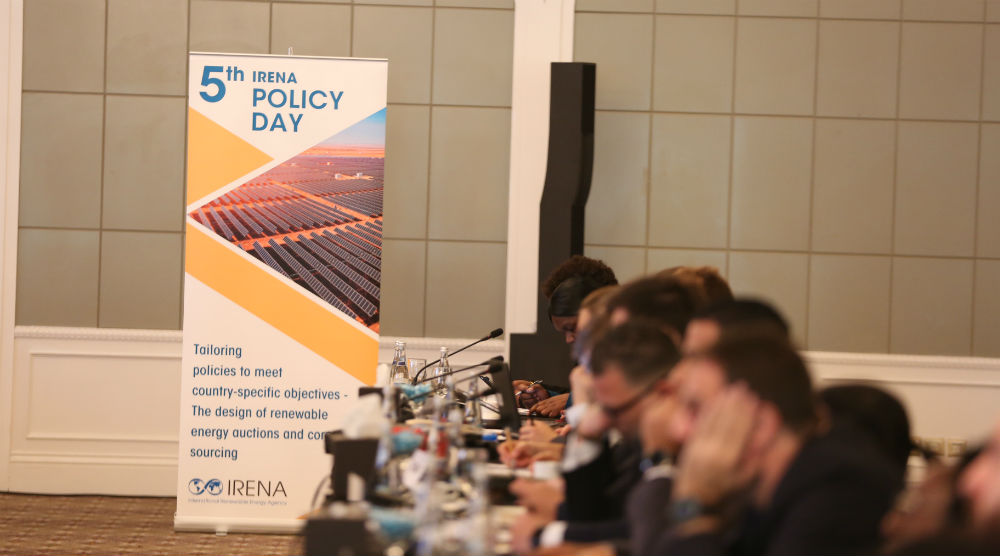
IRENA 5th Policy Day - Attracting Renewable Energy Investment in a Time of Transition

Time: 9:00 - 17:00
Venue: Sheraton Corniche
Transforming the energy system requires policies that contribute to an enabling environment for attracting investments in the sector. As deployment has grown and technology matured, renewable energy policies are increasingly integrated into overall energy sector planning while also addressing wider growth and development objectives. To inform policy making, IRENA provides state-of-the-art analysis of enabling policy frameworks and finance mechanisms, spanning the entire renewable energy development cycle. The analysis formed the basis for the discussions at the IRENA Policy Day.
IRENA’s Policy Day provided a forum for renewable energy policy dialogue where countries and stakeholders could share experiences and disseminate best practices in policy-making to ensure the efficient deployment of renewable energy, and the maximisation of the benefits realised. The Policy Day generated feedback from IRENA Member States, policy makers, and experts which provided key input to support IRENA’s implementation of the Work Programme in the policy realm, to ensure relevance and accuracy.
The day kicked off with a session on renewable energy policy and finance in a time of transition that addressed the mix of direct, enabling and integrating policies needed to transform the energy system, at the national and local level. The session gathered experts from partnering institutions with country representatives to discuss the transformative actions needed on the ground to align energy policies with climate objectives, unlock investments, scale-up renewable energy projects, and strengthen local capacities.
The second session focused on policies in the power sector and addressed tailoring policies to meet country-specific objectives through the design of renewable energy auctions and the corporate sourcing of electricity. Participants discussed the various trade-offs to consider between achieving the lowest price from auctions versus other objectives such integrating variable renewable energy or ensuring an inclusive and fair energy transition. The session also touched upon the growing role of corporate renewable energy demand in a time where some jurisdictions are shifting away from administratively set pricing instruments.
The third session addressed the allocation and management of risks related to renewable energy projects to facilitate renewable energy investments. It explored policy design elements and contractual frameworks that allocated the various risks inherent in a renewable energy project to the different contractual parties and how the residual risks can be mitigated. An overview of the different types of risk mitigation instruments, the providers of such instruments and how they can be accessed and used were provided. The session included an introduction to IRENA’s Risk Assessment and Mitigation Platform.
The last session focused on broadening the policy framework to ensure a just and inclusive energy transition. Panellists and country representatives shared experiences in integrating transition policies to address potential socioeconomic challenges.
A wrap-up of the day can be read in IRENA's newsroom.